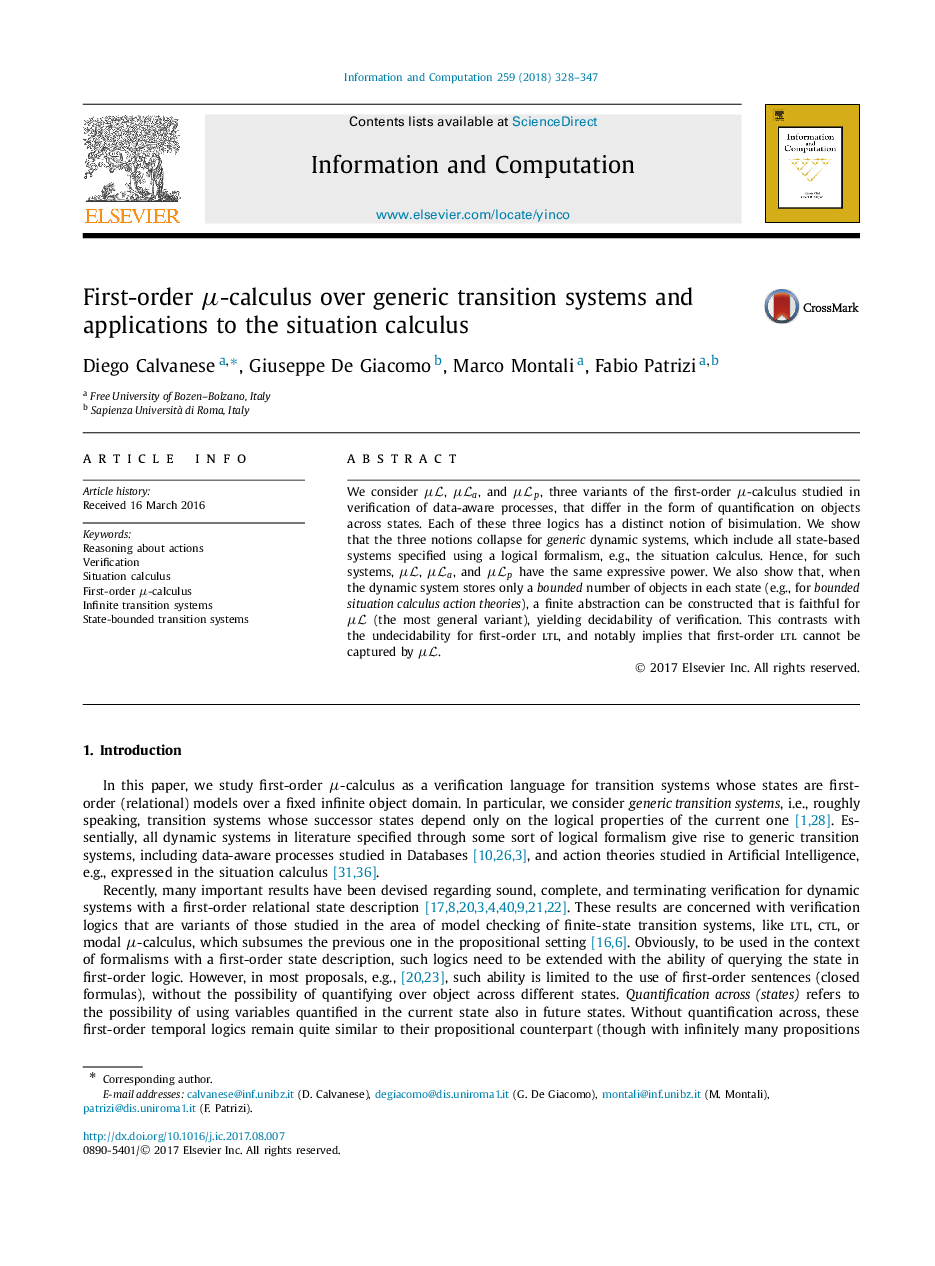| Article ID | Journal | Published Year | Pages | File Type |
|---|---|---|---|---|
| 6873856 | Information and Computation | 2018 | 20 Pages |
Abstract
We consider μL, μLa, and μLp, three variants of the first-order μ-calculus studied in verification of data-aware processes, that differ in the form of quantification on objects across states. Each of these three logics has a distinct notion of bisimulation. We show that the three notions collapse for generic dynamic systems, which include all state-based systems specified using a logical formalism, e.g., the situation calculus. Hence, for such systems, μL, μLa, and μLp have the same expressive power. We also show that, when the dynamic system stores only a bounded number of objects in each state (e.g., for bounded situation calculus action theories), a finite abstraction can be constructed that is faithful for μL (the most general variant), yielding decidability of verification. This contrasts with the undecidability for first-order ltl, and notably implies that first-order ltl cannot be captured by μL.
Related Topics
Physical Sciences and Engineering
Computer Science
Computational Theory and Mathematics
Authors
Diego Calvanese, Giuseppe De Giacomo, Marco Montali, Fabio Patrizi,
